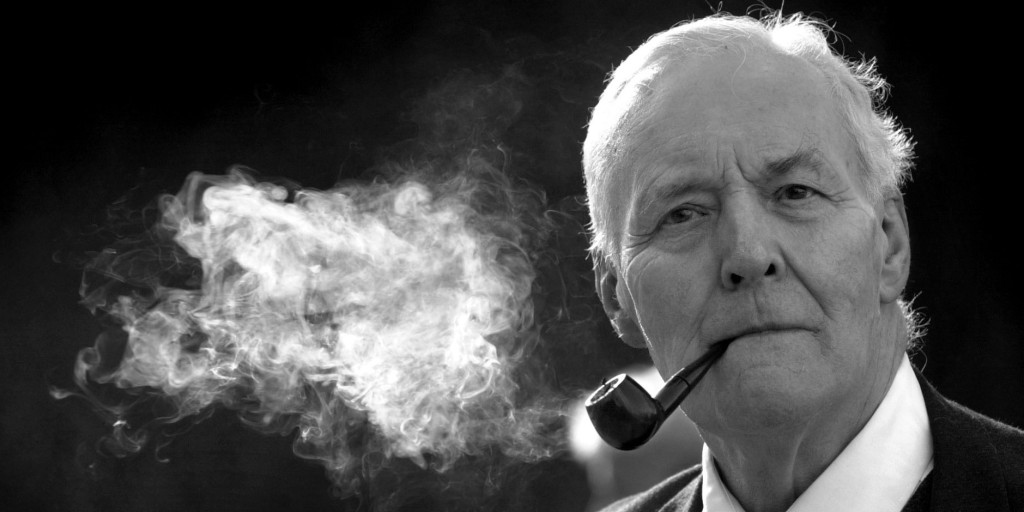Why politics should be about personalities

I first wrote this in 2010 and thought it was time for a slight update and republication as I keep on finding myself thinking the same thoughts again.
The late Tony Benn’s lament that politics should be about issues, not personalities, is one echoed even by many who would struggle to find any issues on which they agreed with him.
But it’s not a view I share. Why? Because the detailed policies of election manifestos or conference speeches frequently get swept aside in power by events. It’s not just the unexpected new event, it’s also the fallibility of forecasts which mean that decision making is often made from a very different perspective from that used to draw up pre-election policy promises.
Take the economy. It’s hard enough to know whether it is growing or shrinking in the first half of this year, let alone what its size and growth rate will be in the middle of the next Parliament. So while a party’s general election manifesto should have sums that add up and give a sense of economic policy, as I wrote in Liberal Democrat Newswire #50, the details on page 12 of exactly what is planned to be done will almost certainly be swept away by reality being far less predictable than required for that level of policy detail to really mean much beyond the first few months in power.
Immediate post-election budget plans certainly do matter – and any party deserves criticism if they try to get through an election without saying much on that score. But beyond that?
The details of what Ed Balls, George Osborne or Danny Alexander say they would do two years into the next Parliament may sound good but it’s principles which will be the surer guide to what ends up happening. Their principles and personalities are what will generate new policy as events unfurl and predictions turn into inaccuracies.
That is nothing new. It’s related to a point, in fact, which Charles Kennedy often made. The issues on which he, William Hague and Tony Blair campaigned in 2001 turned out to have very little relation to the major issues that dominated politics in 2001-5. Tuition fees and Iraq most notably were major issues in the Parliament but almost completely absent from the preceding election.
Understanding Tony Blair’s personality – and the moralistic sense of duty fuelled by his religious beliefs, as evidenced over Kosovo – would have been a far surer guide to Labour’s subsequent foreign policy than the details which happened to be highlighted on page 39 of the 2001 Labour manifesto about Labour and the UN. (“We support a more modern and representative Security Council, with more effective peace-keeping” since you ask).
Tony Blair’s religious beliefs take us into uncomfortable political territory. Few criticised him (or Alistair Campbell) for so determinedly keeping his religious views out of political discussion – and indeed many preferred it that way. But understanding how he saw intervention in Kosovo and Iraq as being a moral imperative, regardless of how others say their morality leads to very different views, matters far more than the incidental detail of one policy paper or another.
Recognising the importance of personalities and beliefs shouldn’t mean open season on anything a politician has done in the past – but understanding the person, their personality and the judgements it will produce, is a surer guide to whether or not you’ll get the policies you want over the full Parliamentary cycle than the putative decisions laid out in a policy paper as if the future will be predictable and unsurprising.
There’s a lot to be said for the definable and indefinable qualities that make some people better at leadership than others. I listened to Tony Benn on stage in Crawley many years ago. This is what I remember but its an elaborated memory. There are two types of politician, he said: weather vanes and signposts. The weather vanes are always shifting to meet the public mood as if to seek the winds of change. Then there’s the signposts we point the way forward and are not too bothered if people disagree at any one moment in time. They have confidence that they’ve seen the future. It may be the last one Benn preferred or claimed to be. Personally, I think a good leader must be a proportion of both. Let’s say 40/60 in favour of the signposts.
One of the sorts of leadership is that required in the military.
I remember one of the quotes we were told at Sandhurst ” leadership is not a popularity contest ”
Much of the difficulty in politics seems to come from
The fact that it is a popularity contest to get elected and that those who can do that aren’t always the best leaders able to take hard choices and inspire people to follow them.
An old fashioned view I know.
Tony Benn always seemed to be right after the event. Somehow him being in a cabinet which spent millions on an abortive attempt to update Polaris never was his fault.